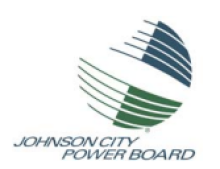By
on

One month after the Johnson City Power Board (Tennessee) approved a fiber-optic network, they have issued a request for qualifications to identify potential partners that would provide broadband services over the publicly owned fiber-optic backbone.
Johnson City lies between Chattanooga and Bristol (Virginia), two communities with advanced next-generation networks that have created significant economic development.
According to a feasibility study by the utility, the third-party vendor approach would give the JCPB the best return on investment, balancing low risk with possible profits. The Power Board would provide the “backbone,” while the vendor, working under JCPB’s brand, would provide the “last mile” services and equipment to the commercial customers. The utility’s telecommunications division would be self-sustaining, and have absolutely no effect on electric rates.This seems similar to the approach of Lafayette, Louisiana almost 10 years ago. Lafayette eventually decided to build out the network to residents and all businesses when the ISPs using its network were not able to use the backbone to expand to serve everyone (the economics of building last mile fiber-to-the-home connections rarely coincide with private sector goals of maximizing short term returns). Judging from their projections, Johnson City does not need to hit particularly ambitious targets:
To reach its revenue and return on investment projections, the JCPB would need to capture about 20 percent of the area’s total market for data services, about 15 percent of the market in phone services, and about 5 percent of private data services over five years, based on a market of 3,000 commercial users.However, even those modest goals will be difficult unless they find a good, trusted partner. Most public power utilities have the trust of residents or businesses -- that trust may not extend to whoever they work with.
Geoterm







